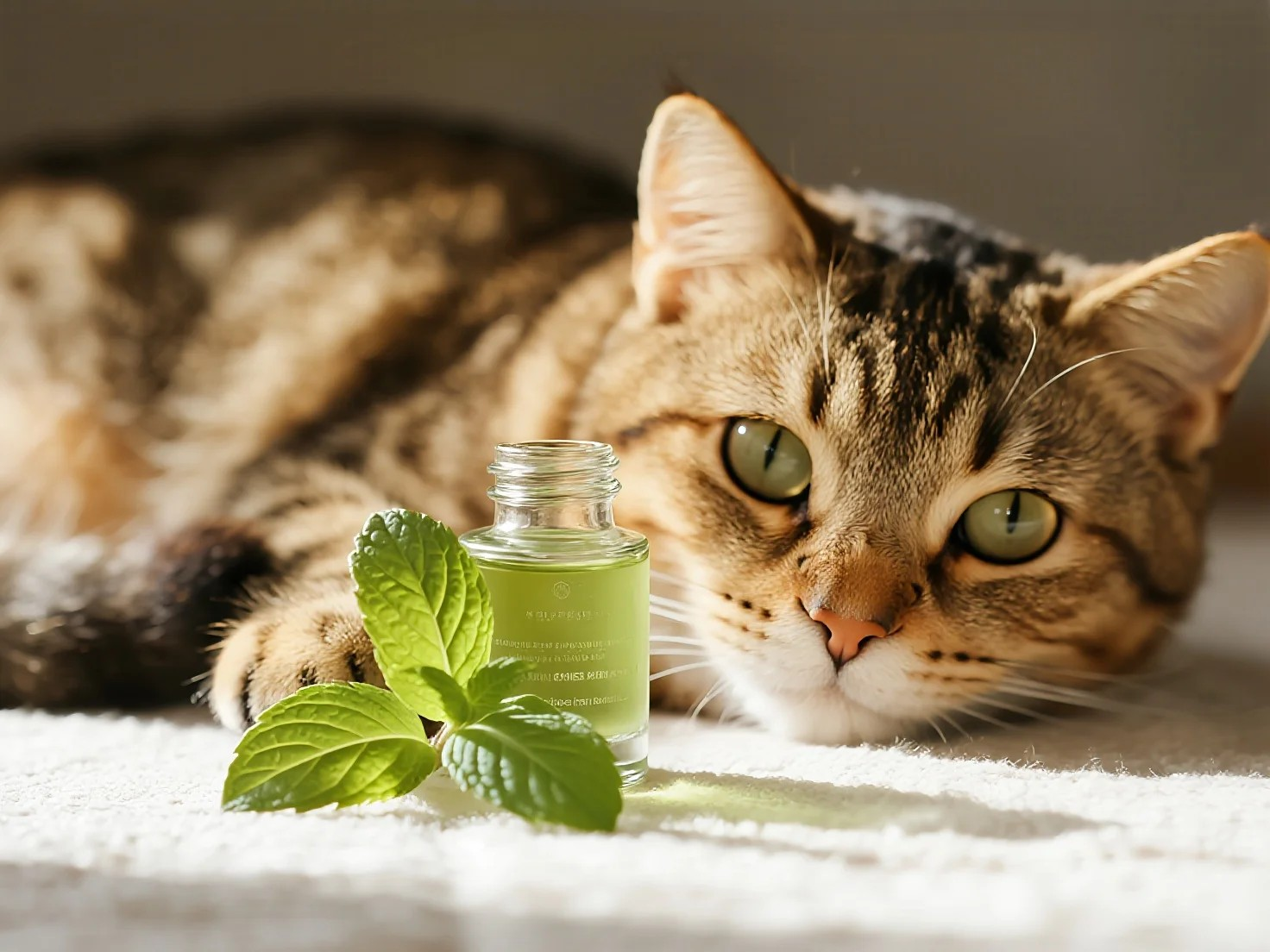Introduction:
With the rising use of essential oils in homes, cat owners urgently need answers to one question: Is peppermint oil safe for cats? Veterinary science confirms a clear warning: Peppermint oil is highly toxic to cats and can trigger life-threatening reactions. This guide explains the dangers, symptoms of exposure, and how to protect your feline companion.
Table of Contents
Understanding the Toxicity Risks
Peppermint oil poses severe risks to cats due to their unique physiology. Cats lack specific liver enzymes needed to break down compounds like menthol and pulegone found in peppermint oil. When inhaled, applied topically, or ingested, these toxins rapidly absorb into their system. Exposure can cause neurological damage, chemical burns on skin or gums, respiratory failure, or irreversible liver damage. Even diffusers release microdroplets that cats inhale or lick off their fur, making any household use dangerous.
Recognizing Poisoning Symptoms
Symptoms of peppermint oil poisoning typically appear within hours. Mild cases involve drooling, vomiting, or pawing at the mouth due to irritation. Severe exposure escalates to muscle tremors, difficulty breathing, lethargy, uncoordinated movements, or yellowing gums (indicating liver damage). If your cat shows any of these signs after encountering peppermint oil, treat it as an emergency. Contact your veterinarian immediately. Never induce vomiting unless directed by a professional.
Accident Response Protocol
If your cat contacts peppermint oil, act swiftly. First, isolate your cat from the contaminated area. For skin exposure, gently wash the affected area with mild dish soap and water. Remove diffusers from the home and ventilate the space. Crucially, seek veterinary guidance within minutes—delayed care increases the risk of organ damage or death. Bring the oil bottle to help vets identify the toxins.
Vet-Approved Alternatives
Instead of peppermint oil, explore feline-safe options like catnip (a natural stimulant), silver vine (similar to catnip), or valerian root (for relaxation). Always consult your veterinarian before introducing new herbs. Remember: No essential oil is truly safe for cats without veterinary supervision. Even diluted oils carry risks due to cats’ extreme sensitivity.
Prevention Strategies
Prevent exposure by storing essential oils in locked cabinets far from curious cats. Avoid diffusing oils entirely in households with felines. Choose unscented cleaning products and never apply human topical oils to your cat’s fur. For flea control, use only vet-prescribed treatments—never menthol-based products.
Expert Perspective
Dr. Sarah Wooten, DVM, emphasizes:
“Cats metabolize oils 100x slower than humans. A few drops of peppermint oil can suppress their nervous system. When in doubt, assume all essential oils are unsafe.”
Final Recommendation
Peppermint oil is unequivocally unsafe for cats. Its risks far outweigh any perceived benefits. Prioritize your cat’s health by eliminating peppermint oil from your home and opting for vet-approved alternatives. Share this knowledge to protect other feline lives.
FAQ
Is any amount of peppermint oil safe for cats?
No. Even small amounts (1-2 drops) can cause poisoning due to cats’ inability to metabolize menthol and pulegone.
What if my cat licks diluted peppermint oil?
Contact your vet immediately. Dilution doesn’t eliminate risk—cats can’t process these compounds.
Can I diffuse peppermint oil if my cat isn’t in the room?
Avoid it entirely. Oil residues linger in air/surfaces, and cats may later inhale or ingest them.
Are other mint oils (spearmint, wintergreen) also toxic?
Yes. All mint-family oils contain similar compounds harmful to cats.
How long do poisoning symptoms take to appear?
Typically 1–3 hours post-exposure, but may be delayed with skin contact.
